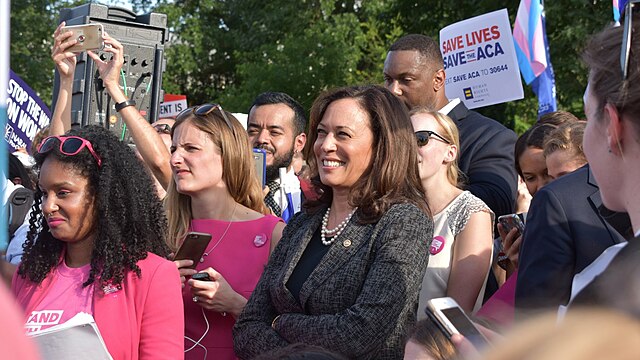Apparently, after President Barack Obama was re-elected, everyone decided that it was perfectly okay for the heads of extremely large, public companies to act like three-year-olds and throw temper tantrums.
In case you don’t know to whom I’m referring, I’m talking about the heads of food companies that have thrown their arms up in protest over the Affordable Health Care Act no longer in danger of being repealed by good ol’ Mitt Romney.
More specifically, the one who’s been in the news the most is Papa John’s CEO, John Schnatter.
As soon as Obama was re-elected, Schnatter started to criticize Obama’s health care reform even more than he had before. Basically, in response to what he sees as being forced to — oh no — pay real money to take care of his workers on top of their already meager wages, he said to Naples Daily News that he was going to cut workers’ hours and — get this — raise the price of pizza by 11 to 14 cents per pie.
Excuse me, but what?
Seriously. This is a man who was placed at 17 on Forbes’ list of the wealthiest men under 40, who has a 40,000 square-foot mansion, which has a guesthouse worth about $7 million.
Mitt Romney was quoted about Schnatter’s wonderful abode. “Who would’ve imagined pizza could build this?” Romney asked. “This is really something. Don’t you love this country? What a home this is, what grounds these are, the pool, the golf course … This is a real tribute to America, to entrepreneurship.”
Actually, it’s absolutely disgusting. A delivery driver from Papa John’s makes about $6.41 an hour. That’s plus tips but minus gas money of course.
And it’s not only Schnatter. Multiple other companies have already cut hours in anticipation of the cost of the required health care, like Applebee’s, Olive Garden and Red Lobster.
In my honest opinion, this is wrong. So many levels of wrong.
People die of not having health care. Literally, they die because they are hesitant to go the doctor because of how much it costs, because they can’t afford a yearly screening that would catch diseases before they become lethal, or because they can’t afford prescriptions that simply keep them alive.
I’m not sure if some people are aware of this, so I will say it again.
People are dying every day from preventable diseases and other health conditions because they cannot afford health care.
And people like Schnatter are selfish enough in their multi-million dollar castles to protest actually saving people.
If this is a real tribute to America and entrepreneurship, I don’t want any part of it.






Christopher Smith • Dec 8, 2012 at 9:13 pm
It is certainly not just the 11-14 cents per pie. The Affordable Care Act stipulates that all employees that work at or over 30 hours a week be deemed full time workers when considering this law. So what unintended consequence are they going to face a Papa Johns? For one, they are going to see a reduction in hours for their part time employees.
Of course, if Applebee’s, Olive Garden, Papa Johns, and Red Lobster take your advice and just give the workers’ healthcare coverage, no doubt you want them to have higher wages and see an increase in hours, the competition in their respective markets will be jumping for joy as they watch the cost of healthcare transferred over to the price of a meal, and thus, strike a nail in their competitive coffin. Indeed, if Papa John’s gave all of their workers full time employment and health coverage they would be the most expensive pizza on the market and then you would be “oh no-ing” to find out that those workers lost their jobs. Nonetheless, the only reason that the Papa John’s CEO is able to keep the damage down to 11-14 cents per pie is because most of his workers are in fact part time. Well, they were part time around (+/-) 30 hours, now they’re part time around (+/-) 28 hours.
So what should his workers be paid? Should the government decide that? Should you decide that? No, there is something that is way more honest and fair that decides wages. It’s called the marketplace. Being that these jobs don’t require high skilled labor, the demand for labor is low, and thus, there is no need to pay them more than what they’re worth; minimum wage. If they were skilled labor, there would be no need for them to work at Papa Johns. Moreover, if they don’t start somewhere, their options for becoming skilled labor are minimal. There are, however, people of skilled labor that are high in demand.
CEO’s are few and far between. Since not everyone can run a fortune 500 company, or any corporation for that matter, the boards of directors cast out their fishing nets to seek out the best and brightest managers in the business. Since the demand for labor is high and the options scarce, a proven CEO can demand high wages. If you were to cap those wages, however, you would limit your talent pool. Therefore, your complaints about millionaire CEO’s and their million dollar mansions are unfounded and dangerous.
So what does a CEO do with his money? He/she could buy a mansion, among other luxury goods, all of which are built by workers who are paid much higher wages than that of Papa Johns. Would you have the luxury market artificially see a decrease in sales and lay off those workers? I would hope not. What else would a CEO do with his/her money? Stuff it under a mattress? Save it in a bank where the savings won’t even beat the rate of inflation? No, CEO’s like all other wealthy put their money to work in the form of investment, and investment means jobs. In fact, if you want to become a CEO so you can donate all of your free income to the workers you are certainly free to apply.
Yet another point I would like to make is the regulatory effect on small businesses produced by the Affordable Care Act. Many do not realize that any privately owned business striving to become a future success will face more regulations upon entry than the big publically traded corporations, like Papa Johns, did. Therefore, in the pursuit forcing a healthcare plan on the market, you created a barrier to entry. Certainly, the Papa Johns of the market place who have cleared their overhead, maintain a high market share, and retain a steady line of credit can wait out the negative regulatory fluctuations in the market. For the small business owner, however, the Affordable Care Act is yet another regulation blocking the path to growth.
Profit is the goal. That’s certainly not a bad thing! As a publically traded company, a strong profit margin means more investors, and more investors mean an expansion in the marketplace, i.e. more jobs. However, in your perfect world where everyone gets everything they require to the point when they can become comfortable in their poverty, where profit is secondary to the needs of the worker, you will find that the drive to become educated, skilled, and productive will suffer a great decline. Indeed, as Noble laureate Milton Freidman once said, those who place equality before liberty will gain neither, those who place liberty before equality will receive a great deal of both. More and more we see those of your opinion speak of equality of stuff and not equality of liberty.
Whether it is the high school students first job, the student working his way through college, or the senior supplementing his/her social security with a part time job, these are the people you hurt with the Affordable Care Act. No matter how you twist it, the ACA is bad for the worker, it is bad for business, and it is bad for the market. I suppose you will see an increase in part time employment as employers fill the void artificially created by the lower hours of their workers, but all that will mean is less money for the college student, retiree, or part time married mother/father. And who gained healthcare among all of these part time workers? Zero! No one! Nada! Indeed, between two part time jobs a low skilled worker may be working 58 hours a week, but enjoy healthcare from neither employer.
Of course, despite all of this, the worker is still required by law to purchase healthcare or be fined a penalty; a trade off between President Obama and the insureance companies for taking those with pre-existing conditions. The penalty, however, is lower than the cost of healthcare. Likewise, the cost of an employer to stop providing healthcare and push their employee’s on to the state exchanges is also cost effective. Furthermore, insurance companies can no longer deny health coverage on the basis of pre-existing conditions. That would be like getting into a car accident only to purchase car insurance shortly afterwards and demand that they pay for your uninsured incompetence. Finally, the taxes on medical devises will increase, not decrease, the cost of healthcare, a cost which is ever increasing despite promises made by a man who has never run a business or met a payroll in his life, President Obama.
In the end, the uninsured will pay the penalty instead of the cost for healthcare, most full time minimum wage paying businesses will dump their employees onto the state exchanges, and the universal acceptance into the health insurance market will increase both the cost of healthcare and health insurance. In other words, a plan that was designed to stop the transfer of healthcare cost from the uninsured to the taxpayer will transfer the healthcare cost to the formally uninsured/uninsurable to the originally insured. It will be a system that will become more expensive than before, the government will blame the insurers/providers and attempt to solve the problem they blamed on others with government run universal healthcare which, if Medicaid/Medicare is any indicator, will only add fuel to the fire. I suppose that is the antithesis of entrepreneurship, and perhaps, something you do want to be a part of?
So what’s the solution? Well, as we have seen, the further the healthcare industry has moved from the free market the higher the cost has become. The increase in regulations, barriers to entry, and increased government control of the healthcare market has in fact increased the cost of healthcare. Thus, as Papa Johns, Red Lobster, Applebee’s, & Olive Garden pay homage to the alter of the ever vengeful free market and make their adjustments accordingly, you ignore the correlation between government involvement and increasing healthcare prices, you deaminize a business for following a market that healthcare is increasingly detached from, and fail to realize that an increase in benefits translates to an increase in prices and a gift to their competitors who will no doubt reduce workers hours out of market necessity, not want. If class warfare/demonization with an advocacy of the socialist healthcare model is your idea of entrepreneurship, I don’t want any part of it.
rachel • Jul 29, 2017 at 3:41 pm
tl:dr